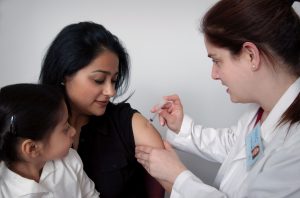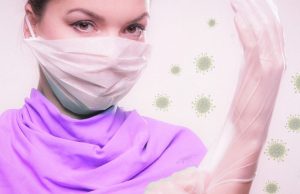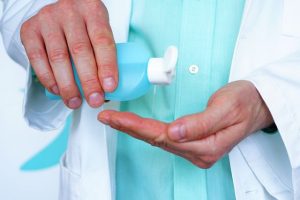Standard Precautions and Practices to Prevent COVID-19
Table of Contents
Standard precautions and practices to prevent COVID-19. Healthcare workers are always at the forefront of every disease outbreak, which puts them at risk. There is a more likely high risk of exposure to various harmful or hazardous pathogens during outbreak control, includes hazardous organisms, prolonged working hours, mental distress, occupational burnout, stigma, physical and psychological violence.
Therefore WHO, made the rights and responsibilities including special measures for occupational safety and health protection of health care workers during preventing CORONAVIRUS DISEASE (COVID-19) infection.

Health professionals should follow occupational health and safety measures and procedures, and should not expose the patient’s information to others about health and safety concerns. Health workers should not skip any training or workshop related to risk infection and occupational safety. Likewise, follow all protocols designed by associated authority or government or WHO for the treatment and prevention of COVID-19 patients.
Always treat patients with respect, compassion with their dignity, and privacy. Follow the public health reporting system of existing country or health care system for suspicious and confirmed cases. Standard precautions and practices to prevent COVID-19.

The role of all health workers is very important and crucial in preventing the spread of infection and epidemics. However, there are standard precautions developed by the WHO that every health worker should adopt and practice during caring for patients.
These standard precautions are there to protect health workers and to prevent the spread of infections by health workers to patients, visitors, and others. Standard Precautions and Practices to Prevent COVID-19.
Standard Precautions and Practices to Prevent COVID-19

- Hand Hygiene practice
- Use of personal protective equipment (e.g. gloves, gowns, masks, PPE)
- Safe Injection Practices
- Safe Handling of Potentially Contaminated Equipment’s or Surfaces in the Patient Environment
- Hygiene related to breathing and Precautions to be taken when coughing. (Respiratory Hygiene/cough etiquette)
- Health workers or people involved in the treatment of the patient should not use mobiles in isolation rooms.
- Do not bring any items in and out of the isolation room. It should be thoroughly disinfected or disposed of properly.
Respiratory Hygiene and Precautions to Take When Coughing
Respiratory Hygiene or Cough Etiquette is a precautionary measure to prevent infections. Reducing the spread of respiratory illnesses in health institutions, such as influenza or the common cold, because patients, staff, and visitors may not be immediately recognizable if they have a corona infection. Precautions and Prevention of COVID-19.

Standard Precautions and Practices to Prevent COVID-19
- Provide health education to the patients’ families, visitors, and caregivers on how the coronavirus is transmitted and how to avoid it.
- If family members, visitors, and caregivers are also sick, tell them to stay home.
- Give instructions on how to cover and wash your hands if you have a cough sneezing and use the poster of signs posted with pictures.
- Instruct to use tissues or handkerchiefs when coughing or sneezing, and to dispose of used tissues or handkerchiefs properly.
- A person with a cough must be advised to use a mask.
- Advice yourself to stay away from people with coughs or respiratory infections.
- Wash hands thoroughly after contact with the corona virus-infected patient. This applies to patients, family members, visitors, staff, and care providers.
- Teach the patient and their visitors how the disease is transmitted and how to take precautions.

Conclusion
Standard precautions and practices to prevent COVID-19. Health worker rights include that employers and managers in health facilities are following. Make sure all necessary preventive and safety measures are in the proper place? Likewise, provide health education and training on occupational safety and health information, such as training in Infection Prevention and Control (IPC), use of Personal Safety Equipment (PPE), proper keeping, Take Off, and Disposal, to every health worker.
Including these make sure that is there adequate IPC and PPE supply, concerning the supply of masks, gloves, goggles, gowns, hand sanitizer, soap, and water, cleaning supplies to health care or other staff? These above basic pieces of stuff are most important to the treatment and prevention of Corona Virus (COVID-19) infection. Also, read food to increase immune power to fight against COVID-19 and workout during the lockdown.
Maintain social distance. Use a mask.
Wash hands thoroughly with soap and water.








